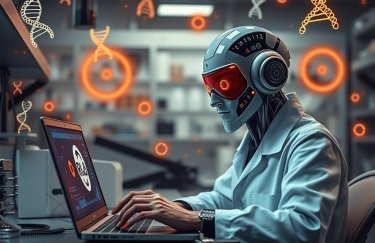AI won't soon replace many professions and jobs, despite the widespread belief, writes “Puls Biznesu.” The transformative impact of this technology will be different – by changing the way people work, not eliminating it. Adapting to new tasks within one's profession will be crucial, the newspaper states.

The newspaper reminds that exactly two years and eight months have passed since the release of the first ChataGPT prototype.
“Analyzing the correlation between susceptibility to automation and wage changes in recent years, one thing can be concluded: AI is not yet having a transformative impact on the labor market, and it is certainly not eliminating jobs. In the American economy, wages in professions with the highest exposure to AI are not changing in a way that differs from other positions,” we read in Tuesday's issue of “PB”.
According to the newspaper, artificial intelligence will continue to permeate the economy for years to come. “Therefore, there is no evidence yet that the professions theoretically most at risk will actually experience significant changes,” PB estimates.
Advertisement See also: Take part in our stock market multi-thlon! Disciplines: sprint for stocks, dive into ETFs, and push your wallet for the prize.
According to the author of the article, “for now, this transformation is not actually happening. But when it does come, it will look different than we think.”
According to the newspaper, researchers Lukas Freund and Lukas Mann explain in their paper “Job Transformation, Specialization, and the Labor Market Effects of AI” why aggregated statistics do not reveal the true transformation of the labor market. They write: “Our research challenges the belief that the automation of tasks in a given profession automatically means lower wages for all workers. This assumption is incorrect. The transformation affects everyone differently – even those performing the same profession may experience completely different effects depending on their specialization.”

Researchers indicate that competencies that are difficult to automate will be rewarded: customer service, project coordination, quality control, communication, negotiations – everything that combines interpersonal skills with the ability to think critically.
“Language models are already very good at writing code and will only get better. They can therefore shift programmers' work towards higher-level tasks: project planning or creating ideas for innovative applications, where creativity is relatively more important. Programmers who adapt most quickly to this shift in emphasis in their daily work will win with AI. Similarly, in the case of lawyers: those with developed communication and negotiation skills – difficult to automate – will benefit more from AI than specialists who have so far focused on processing legal documents, tasks that are relatively easy to automate,” we read in “PB.”
According to the newspaper, we shouldn't expect AI to eliminate many jobs in the foreseeable future. “The transformation of the labor market will likely be completely different: the roles assigned to specific professions, the activities performed, and the way of working will fundamentally change, and we will have to adapt to them,” the newspaper reports. (PAP)
iżu/ pl/






